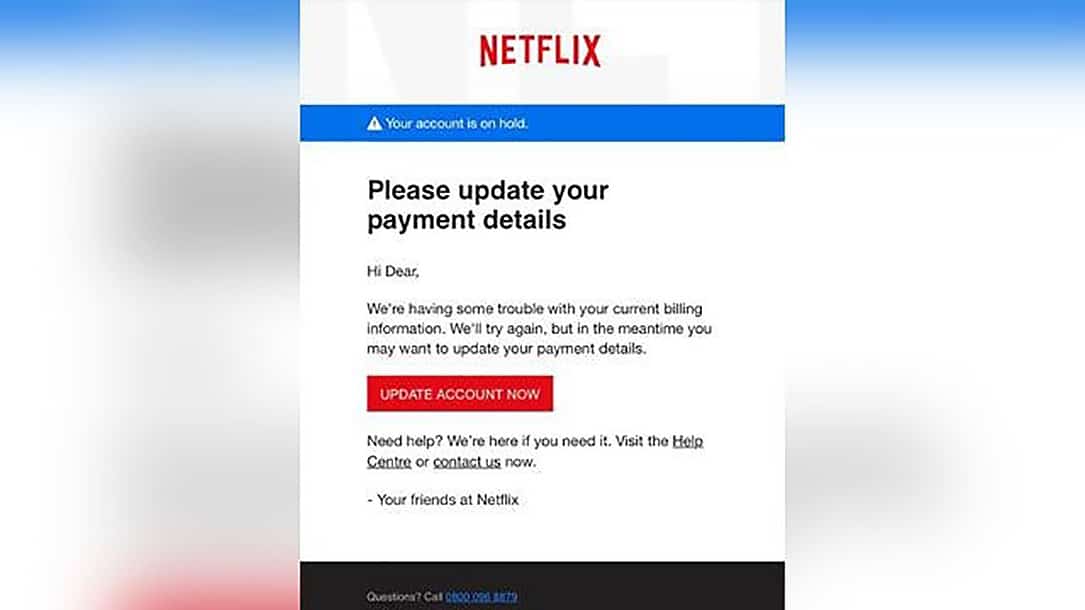The holiday season isn’t a time for hackers and bad actors to take a break. As a matter of fact, it’s probably the best time for them to target users than any other time. Users often have their guard down around the holidays so it makes them easy prey. A new Netflix phishing scam is the latest attempt at getting your private details and information. This Netflix phishing scam warning came from the Federal Trade Commission.
Phishing is when someone uses fake emails or texts to get you to share valuable personal information – like account numbers, Social Security numbers, or your login IDs and passwords. Scammers use your information to steal your money, your identity, or both. They also use phishing emails to get access to your computer or network. If you click on a link, they can install ransomware or other programs that can lock you out of your data.
Scammers often use familiar company names or pretend to be someone you know. Here’s a
real world example featuring Netflix. Police in Ohio shared a screenshot of a phishing email designed to steal personal information. The email claims the user’s account is on hold because Netflix is “having some trouble with your current billing information” and invites the user to click on a link to update their payment method.

Users should be aware of a few steps to protect themselves from these phishing scams. Vet the email, links, and phone numbers that are in the email. Do your research on them before clicking anything. You can even contact the company themselves to inquire about the email’s legitimacy.
Keep your eye out for bad grammar and spelling. Poor grammar and broken English can be your first sign that the email is a scam. Also, pay attention to how you’re addressed. If the email starts with, “Hi Dear.” or anything other than your name it could be a scam. The FTC has suggestions on reporting phishing emails as well:
Forward them to spam@uce.gov (an address used by the FTC) and to reportphishing@apwg.org (an address used by the Anti-Phishing Working Group, which includes ISPs, security vendors, financial institutions, and law enforcement agencies). You can also report phishing to the FTC at ftc.gov/complaint. Also, let the company or person that was impersonated know about the phishing scheme. For Netflix, forward the message to phishing@netflix.com.
This Netflix phishing scam could potentially be costly to you should you click their links. So be careful and be sure to share this info with your friends and family.
What do you think of this Netflix phishing scam? Let us know in the comments below or on Google+, Twitter, or Facebook. You can also comment on our MeWe page by joining the MeWe social network.
Last Updated on February 3, 2021.










